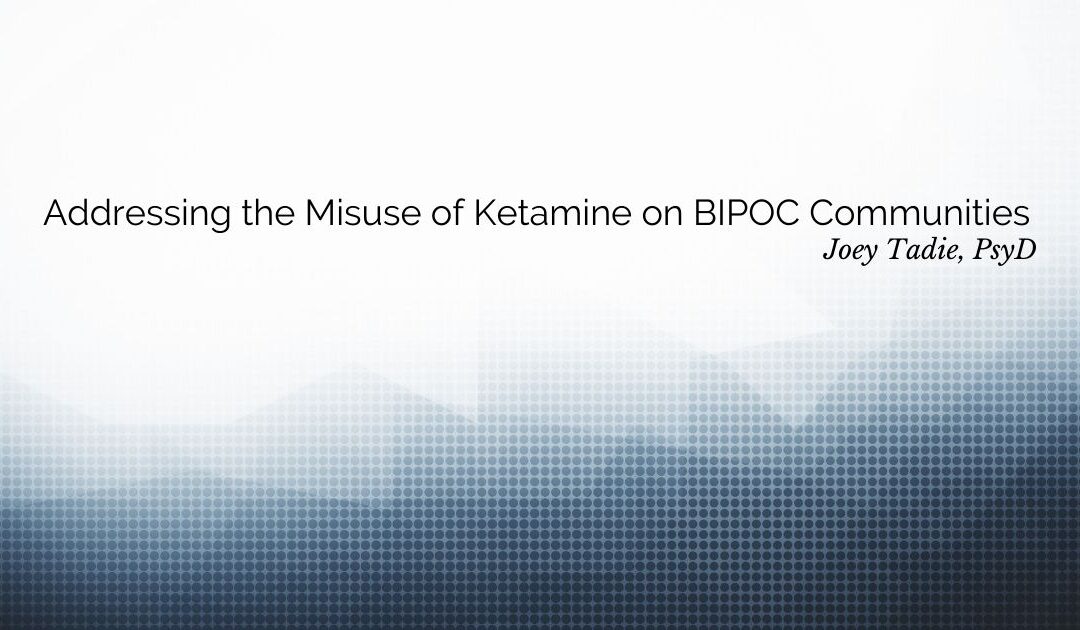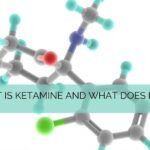The Catalyst Center is working to ethically integrate Ketamine Assisted Psychotherapy (KAP) into our treatment options due to the vast healing potential this medicine has for those struggling with mental health difficulties. As our practice adds KAP to our service offerings, we wanted to address some of the controversy that surrounds this medicine, particularly for many members of BIPOC communities. This controversy has been stoked by high profile situations where severe misuse of ketamine by police and paramedics in non-treatment settings have had devastating effects on BIPOC communities. Among the most prominent examples, in August of 2019 Elijah McClain was stopped by police officers (without cause), put into multiple chokeholds and eventually injected with a high dose of ketamine that was supposed to be a sedative. He tragically died later that week because of how his body was severely mistreated during his arrest. Whereas a number of mistakes were made by law enforcement during this incident, it is clear that ketamine was grossly misused, unnecessarily putting Elijah in harm’s way. Legislature has since been passed to better manage ketamine use by police and paramedics in real-life scenarios. Even so, these changes do not come close to making up for the loss of Elijah. Words cannot adequately express the tragic loss, the injustice at hand in his death, or the impact his death had on the community. Understandably, this tragedy has contributed to deep concerns for many in BIPOC communities about the use (and misuse) of ketamine. This concern is compounded by the historical mistrust many members of BIPOC communities have of the medical field in general due to the history of horrific racial discrimination in medical care (e.g. Tuskagee Syphilis Experiment). The concerns about ketamine are understandable, and this is why The Catalyst Center KAP program is designed specifically to prioritize trust, communication, collaboration, and consent for every client. To this end, let’s examine some of the significant differences between how ketamine was used on the night Elijah was assaulted and how The Catalyst Center KAP program uses ketamine in much more responsible ways for therapeutic purposes.
When ketamine is used in KAP, its purpose is to facilitate psychological healing instead of initiating sedation. One of the first differences between the tragedy with Elijah and structured KAP is dosage. Elijah was given a dose of about 500 mg of ketamine, which was way too high for his body weight of 140 lbs. This 500 mg was enough to sedate a nearly 200 lb person, and such a high dose could have had a detrimental impact on his system. When used for mental health purposes, a good starting dose is 0.5mg/kg based on a person’s body weight (32 mg for a 140 lb person; 50 mg for a 200 lb person, etc.), which is much lower than the amount used for any type of medical sedation. The Catalyst Center KAP program places a heavy emphasis on ensuring the clients are given doses of the medicine that will have therapeutic effects, and the client is medically monitored throughout the process to ensure safety is maintained. Clients are also informed about the doses being offered and are encouraged to ask their provider questions about the potential effects, side effects, etc.
Another major factor involves the issue of giving consent. Elijah was certainly unable to offer consent nor was he given any information about what he was being injected with. He was not given the opportunity to have any choice in the matter, and in this case, ketamine was forced upon him. Because of the powerful effects ketamine can have on the brain and body, not having adequate preparation or support could have made the experience of ketamine positively terrifying. Again, the lack of consent in Elijah’s situation highlights a huge problem, and The Catalyst Center KAP program is, by contrast, fundamentally designed around consent, preparation, support, and trust. KAP clients are very well-informed about the role and effects of ketamine, are able to give permission to receive the medicine, and they are also actively resourced throughout the process in ways that Elijah never had access to. Consent is one of the most important priorities for facilitating the safe use of ketamine in KAP and plays a foundational role in promoting trust between client and provider.
A third difference involves the topics of set, setting, and intention. Set refers to the mindset a client has when they are taking ketamine as a medicine. Elijah was in a very agitated state when he was injected with ketamine and although law enforcement claimed the medicine was used to sedate him, Elijah didn’t have any control over the situation. His mindset was not at all prepared for such a powerful medicine. Setting refers to the environment in which a client is taking the medicine such as in a clinic or some other controlled setting. Elijah was in a very unstable, chaotic setting that did not feel safe or secure for him. Understandably, he did not have any relationship or trust with the individuals who were around him, nor was he able to feel any type of containment from a safe environment. Finally, we examine intention, which refers to the reason a person wants to ingest the medicine or what goal they are trying to achieve. Elijah was not able to have any intention set because ketamine was given to him without consent. Moreover, the dosage he was given was far too high to have any type of therapeutic benefit even if he had had an intention set. In fact, it is more likely that he would have had a traumatic experience instead. Each of these factors was grossly disjointed from any of the therapeutic models outlined in KAP. The Catalyst Center KAP program is designed to promote a healthy set, setting, and intention for all clients who are using the medicine. Tremendous care has gone into creating a safe, secure setting. Moreover, clients collaborate openly with their KAP therapist to help ensure that set, setting, and intention are all securely established.

Hopefully it is clear that there are major differences between ketamine being misused as it was with Elijah, and how it is more appropriately utilized with strict controls and protocols in KAP. Elijah’s loss has left a permanent hole in the community and serves as an important reminder that any medicine has the potential to do tremendous harm when not used safely. We acknowledge the horrific loss of Elijah as a significant factor in an already complex relationship between the medical field and BIPOC communities. As we strive to thoughtfully integrate new treatment options such as KAP we want to create a tone of openness, sensitivity, and dialogue about the impact the misuse of medicines has had on BIPOC communities. The Catalyst Center will continue to promote the ethical treatment of all individuals and communities in every regard, and this especially applies to the use of medicines and therapies. We commit to serve all communities with safety, sensitivity, and integrity as we work to promote healing and positive change at individual and community levels.
Photo by Marcus Dall Col on Unsplash




